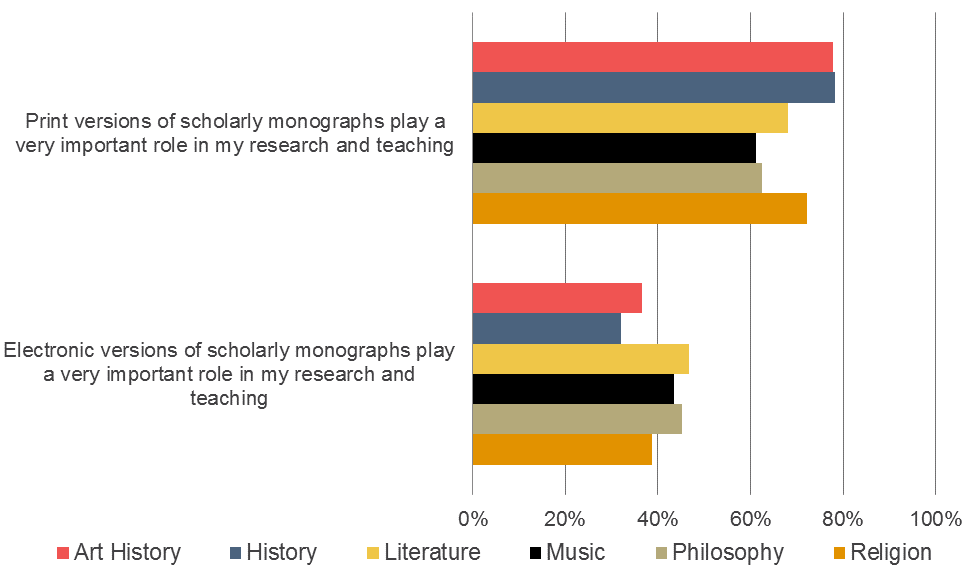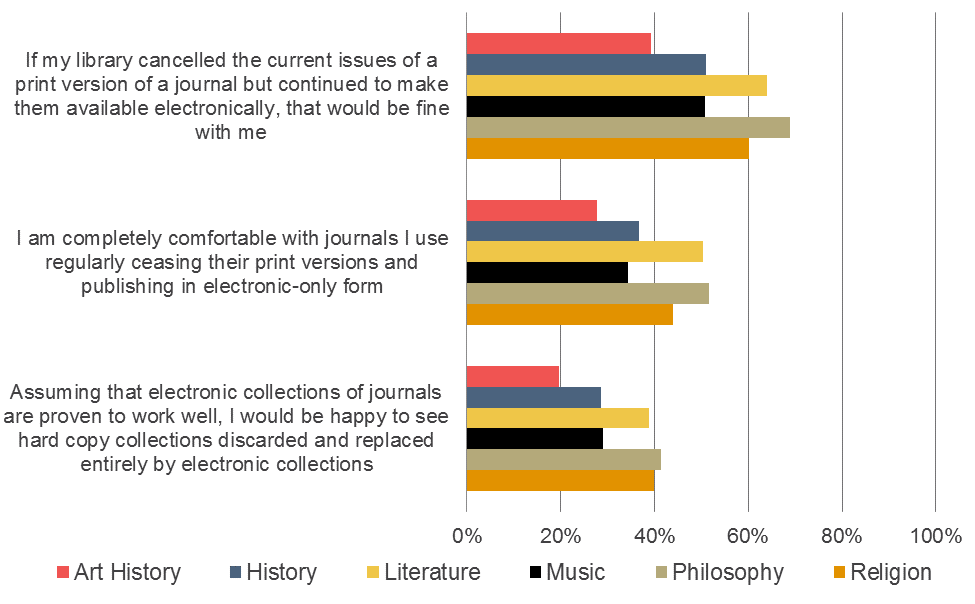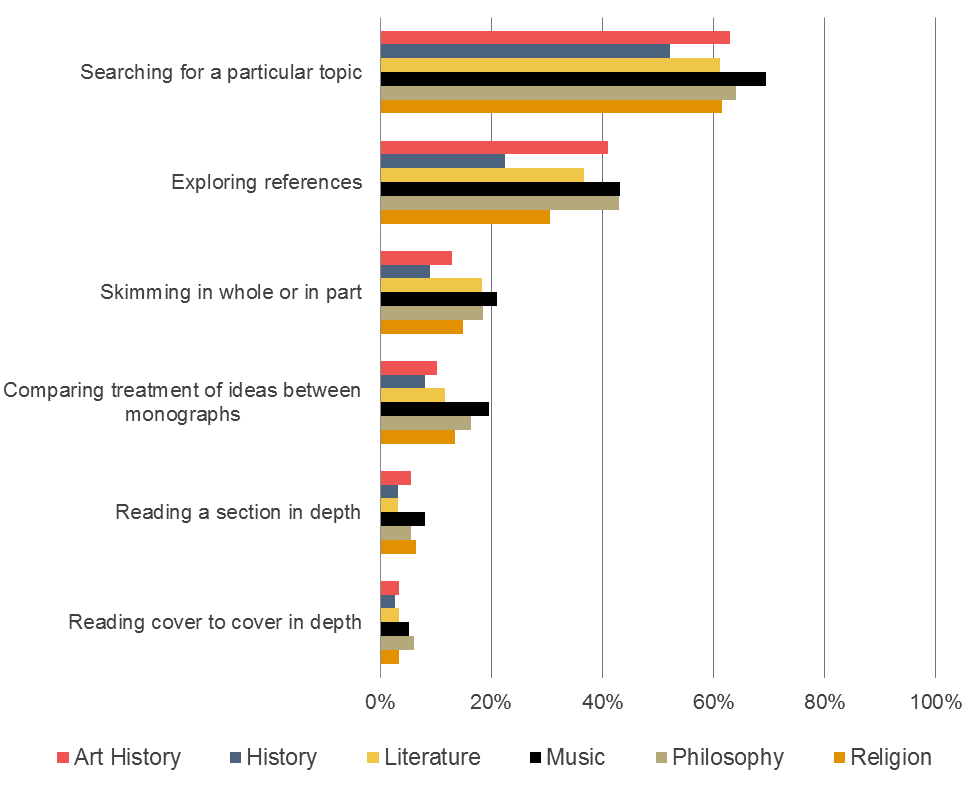Humanists and the Transition from Print to Electronic
In the Ithaka S+R US Faculty Survey 2015, which provides a periodic snapshot of faculty members’ practices and perceptions related to scholarly communications and information usage, we found that humanist respondents differed from those in other disciplines in the value they assign to and ways that they use print and electronic resources. Relative to respondents in other disciplines, humanists most highly value print versions of monographs, are less comfortable with transitioning from electronic formats of monographs and journals, and find it relatively easier to perform many activities with print versions of monographs as compared to electronic versions.
Due to the high response rate in many of the humanities fields – often due to partnerships with associated scholarly societies[1] – we are able to dive deeper into these findings to tease out differences in practices and perceptions amongst those in the art history, history, literature, music, philosophy, and religion fields.[2]
First, we consistently see that each subgroup of humanist respondents more highly values print versions of scholarly monographs as compared to electronic versions. Respondents in music and philosophy fields most closely value the two formats of monographs, although both of these groups of respondents still more highly value print versions by approximately 17-18 percentage points.
Historians, followed by art historians, are most likely to agree that print versions of scholarly monographs play a very important role in their research and teaching and are least likely to agree that electronic versions play a very important role.
Figure 1: Please use the 10 to 1 scales below to indicate how well each statement below describes your point of view – a 10 equals “Extremely well” and a 1 equals “Not at all well.” Percent of respondents who strongly agreed with each of the following statements.

We also see that art historians, followed by historians and music scholars, are relatively less comfortable with the transition from print to electronic format for scholarly journals.
Figure 2: Please use the 10 to 1 scales below to indicate how well each statement below describes your point of view – a 10 equals “Extremely well” and a 1 equals “Not at all well.” Percent of respondents who strongly agreed with each of the following statements.

Finally, when respondents were asked to rate a variety of common activities performed with a scholarly monograph on a continuum between “much easier in print form than in digital” and “much easier in digital form than in print,” historians consistently indicated lower levels of ease in performing all of the activities in digital format. Music faculty members often indicated the highest levels of comfort with the digital format.
Interestingly, while in the previous questions, art historians assigned relatively lower levels of value to electronic versions of monographs for research and teaching, and indicated lower levels of comfort with the transition from print to electronic format for scholarly journals, they seem to also be fairly comfortable with performing a number of activities with scholarly monographs in digital format – especially as compared to historians, who also have indicated lower levels of comfort with the transition to electronic format.
Figure 3: Please think about doing each of these things with a scholarly monograph in print format or in digital format, and use the scales below to indicate how much easier or harder is it to perform each activity in print or digital format. Percent of respondents who indicated that each of these practices is somewhat or much easier in digital format than print.

As you explore the US Faculty Survey 2015 report, what findings would you would like to see Ithaka S+R analyze further? Leave us a comment below or send me an email at christine.wolff@ithaka.org.
[1] We thank the following scholarly societies who partnered with us during this survey cycle: American Academy of Religion, American Anthropological Association, American Council on the Teaching of Foreign Languages, American Historical Association, American Musicological Society, American Sociological Association, Archaeological Institute of America, Association for Slavic, East European, and Eurasian Studies, College Art Association, Modern Language Association, National Council of Teachers of English, Society of Biblical Literature.
[2] We have included all humanities fields for which there were >100 responses.